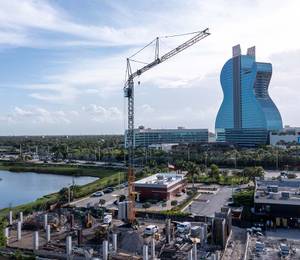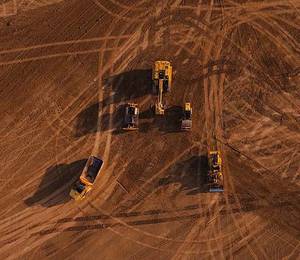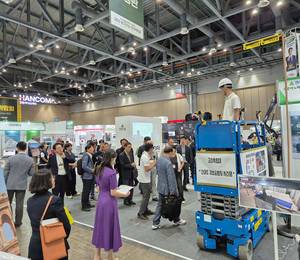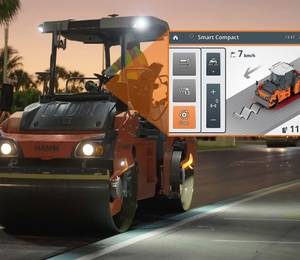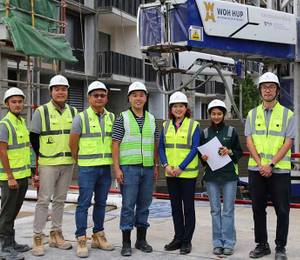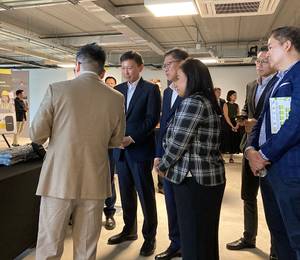Contractor Zenitaka-Gumi has been using a Volvo ECR25 Electric excavator to work on the Naniwa-suji urban rail line project in Osaka, Japan. The machine was rented from Nishio Rent-All, which is also providing full after-sales and service support.
Japan has set a goal of reducing its CO2 emissions by 60% by 2035, and zero-emission machines play an important role in promoting sustainability, both at the corporate and national levels.
In the construction of Nishi-Honmachi Station on the Naniwa-suji rail line, the ECR25 Electric has been installed as the main excavation tool for this project, including the excavation of earth and sand. Operating six days a week, five hours a day, the machine helps to deliver the project successfully, strengthening the railroad network, improving access to Kansai International Airport and Shin-Osaka Station, constructing a new station, as well as creating a new axis that will facilitate urban development along the line.
At the same time, because the project will take place in an urban landscape dotted with residential areas, safety, noise and traffic management are all important considerations, reducing CO2 emissions and noise pollution, and minimising the impact on the surrounding environment.
“The Volvo ECR25 Electric has been instrumental in optimising our processes, especially in overcoming the challenges of this city’s unique landscape, and its outstanding performance and efficiency have not only contributed to the success of this project, but also to our compliance with our commitment to sustainable construction practices,” said the Zenitaka Group. “Through our partnership with Volvo Construction Equipment, we are reaffirming our dedication to responsible construction, minimising environmental impact while also maximising operational efficiency.”
The ECR25 Electric excavator has a capacity of 2.6 to 2.8 t and a crushing force of 22.3 kN. It is equipped with an on-board charger for general charging, an external quick charger (optional for indoor/outdoor use), and a 20 kWh battery, which allows for three to four hours of work per charge. The machine comes with an on-board standard charger and an optional stand-alone fast charger for indoor/outdoor use.
Volvo Construction Equipment (Volvo CE) is continuing towards its goal of reducing CO2 emissions by 40% by 2040. The commitment is also aligned with Volvo Group’s commitment to Science Based Targets.
Note: Japanese companies can register their interest in learning more about electric machines via this online portal.

